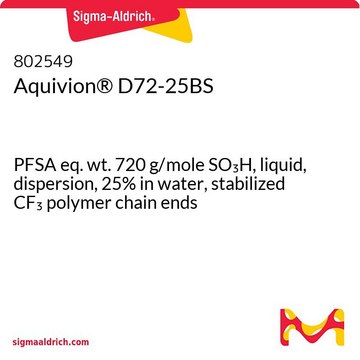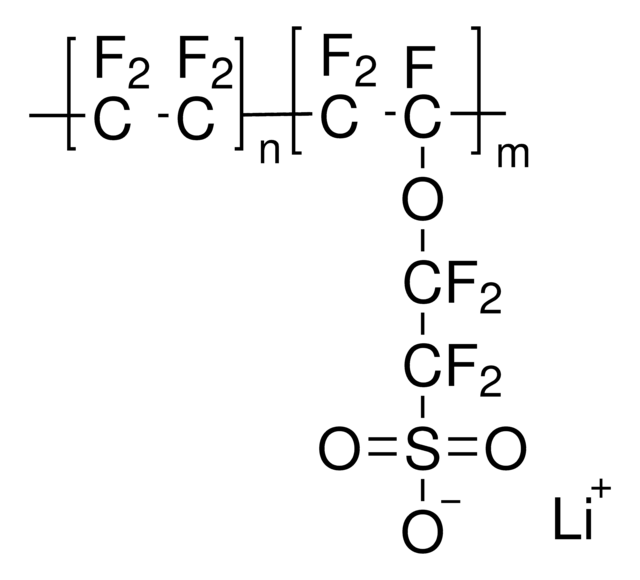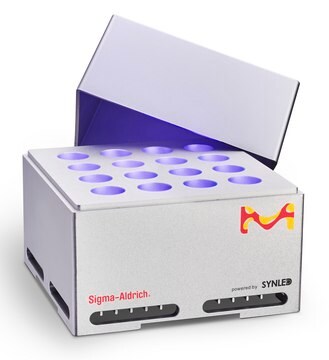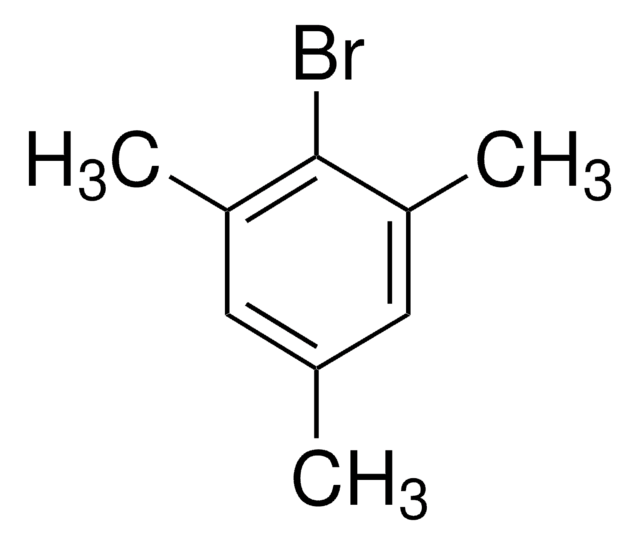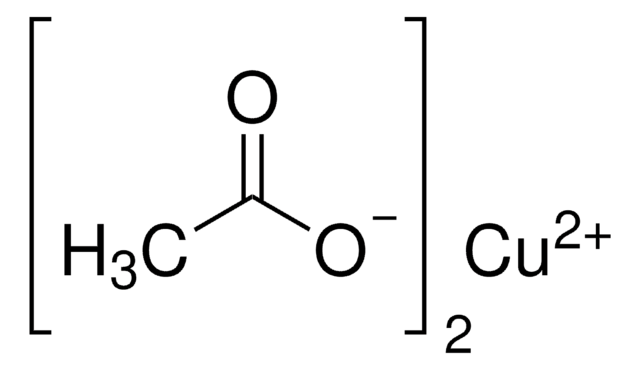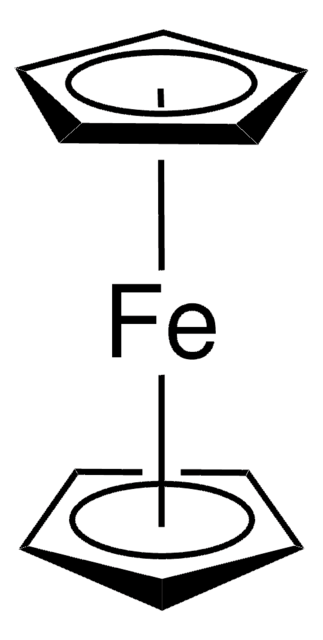802654
Aquivion® D87-25BS
liquid, dispersion, 25% in water, PFSA eq. wt. 870 g/mole SO3H
Sinónimos:
Aquivion® SO3H-form, Tetrafluoroethylene-perfluoro(3-oxa-4-pentenesulfonic acid) copolymer, Ethanesulfonic acid
About This Item
Productos recomendados
Quality Level
form
dispersion
liquid
eq. wt.
870±40 g/mol (SO3H)
composition
25% in water
greener alternative product characteristics
Design for Energy Efficiency
Learn more about the Principles of Green Chemistry.
sustainability
Greener Alternative Product
concentration
>24 % (w/w)
greener alternative category
¿Está buscando productos similares? Visita Guía de comparación de productos
General description
Application
Features and Benefits
- Very high concentration of functional groups for strong proton (or Na+, K+, Li+, etc.) conductivity
- High softening point for high temperature operation well above 80 ºC
- Strong water retention for better fuel cell operation at low-humidity conditions for membranes or catalyst inks that are utilizing this dispersion material
Legal Information
Storage Class
12 - Non Combustible Liquids
wgk_germany
WGK 3
flash_point_f
Not applicable
flash_point_c
Not applicable
Elija entre una de las versiones más recientes:
¿Ya tiene este producto?
Encuentre la documentación para los productos que ha comprado recientemente en la Biblioteca de documentos.
Artículos
Advances in the electrochemical conversion of water to and from hydrogen and oxygen have principally been achieved through the development of new materials and by understanding the mechanisms of the degradation of proton exchange membrane fuel cells (PEMFC) during operation.
Nuestro equipo de científicos tiene experiencia en todas las áreas de investigación: Ciencias de la vida, Ciencia de los materiales, Síntesis química, Cromatografía, Analítica y muchas otras.
Póngase en contacto con el Servicio técnico

